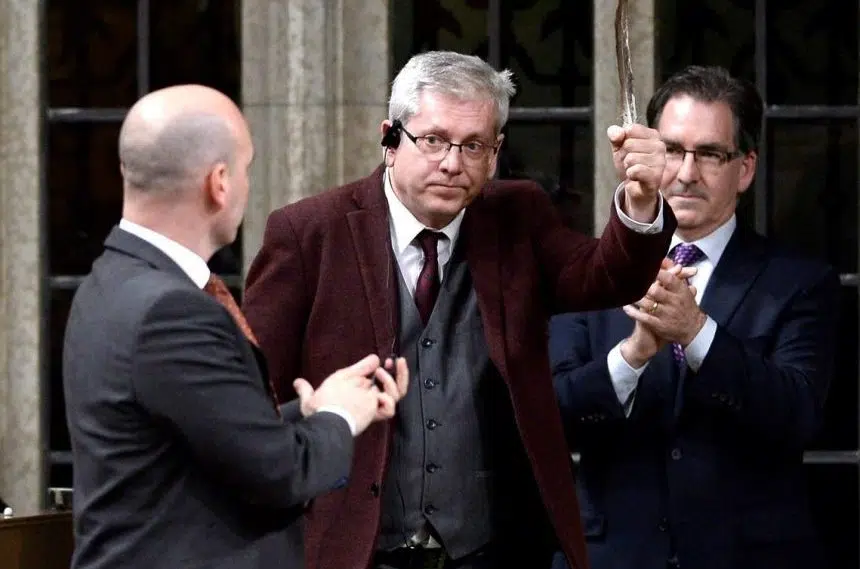OTTAWA — Members of Parliament on all sides of the House of Commons voted Tuesday to extend a formal invitation to Pope Francis to apologize in person to Indigenous Peoples for decades of abuse meted out in residential schools across Canada.
New Democrat MPs Charlie Angus and residential school survivor Romeo Saganash introduced the motion, which passed by a margin of 269-10. Cheers erupted for both MPs as they stood to vote; Angus held aloft a feather as his vote was acknowledged.
“I’m very, very confident that Pope Francis will respond and I’m hopeful that the Catholic bishops in Canada will hear this message and say, ‘Yes, we have come to the table,” Angus told a news conference following the vote.
Angus said he would “not lose any sleep” over the handful of MPs who voted against the motion, all of whom were Conservatives, and instead chose to focus on the “overwhelming response” from members of all political backgrounds.
“This to me is an incredible outpouring of support and solidarity for the issues of reconciliation.”
Among the 94 calls to action by the Truth and Reconciliation Commission was a request for an apology — to be delivered in Canada by the pontiff himself — for the church’s role in the residential school abuse of First Nations, Inuit and Métis children. An estimated 150,000 of children were forced to attend the schools, many of which were operated by the Roman Catholic Church.
But in March, the Canadian Conference of Catholic Bishops said that while the Pope acknowledged the commission’s findings and expressed regret for past wrongs, he “felt he could not personally respond.”
The Pope’s decision pushed NDP MPs to launch the motion soon after, which also calls on the Catholic Church to pay money owed to residential school survivors and to turn over relevant documentation regarding the government-sponsored schools.
The vote comes two weeks after Conservative MP Garnett Genuis opposed a bid for unanimous support for an earlier version of the motion, which urged the bishops to invite Pope Francis to apologize.
Last month, the conference described reports of the Pope’s decision as “misinformation,” saying it was the role of Canadian bishops, not the pontiff, to work towards advancing reconciliation with Indigenous Peoples.
Northwest Territories regional chief Bill Erasmus, who holds the portfolio for residential schools for the Assembly of First Nations, says having the Pope travel to Canada to deliver an in-person apology is a necessary step to right the wrongs of abuse.
“Part of the reason people want an apology is to first of all have the church admit they did harm,” Erasmus said. “Then you can forgive them, you can actually accept the apology.”
Erasmus said both his father and grandfather were residential school survivors, although his father did not live to see the Canadian government’s apology in 2008 for its role in running the schools.
Still, hearing the Pope also accept responsibility and seek forgiveness would have made his father happy, Erasmus said.
“It makes it real and it helps the healing — it helps to sort things out, so people can move forward and move on with their lives.”
Raisa Patel, The Canadian Press
Note to readers: This is a corrected story. An earlier version said Genuis opposed unanimous support for the latest version of the motion.







